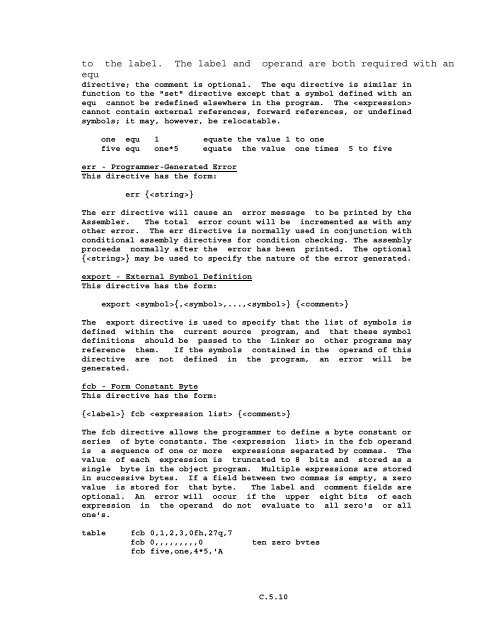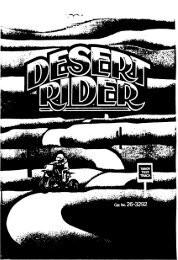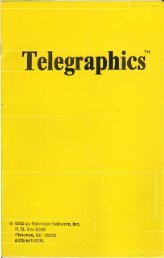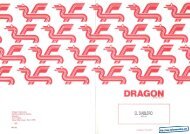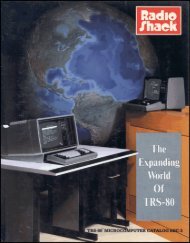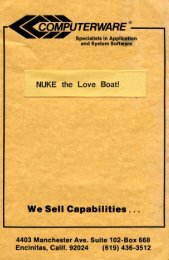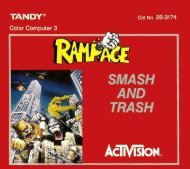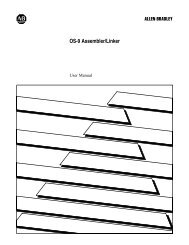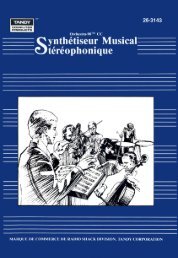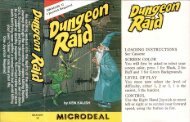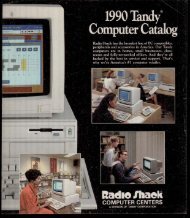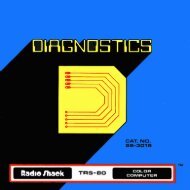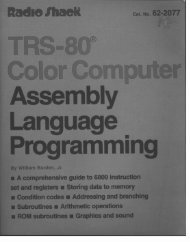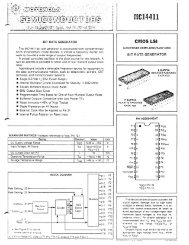INTROL-C COMPILER REFERENCE MANUAL
INTROL-C COMPILER REFERENCE MANUAL
INTROL-C COMPILER REFERENCE MANUAL
You also want an ePaper? Increase the reach of your titles
YUMPU automatically turns print PDFs into web optimized ePapers that Google loves.
to the label. The label and operand are both required with an<br />
equ<br />
directive; the comment is optional. The equ directive is similar in<br />
function to the "set" directive except that a symbol defined with an<br />
equ cannot be redefined elsewhere in the program. The <br />
cannot contain external references, forward references, or undefined<br />
symbols; it may, however, be relocatable.<br />
one equ 1<br />
five equ one*5<br />
equate the value 1 to one<br />
equate the value one times 5 to five<br />
err - Programmer-Generated Error<br />
This directive has the form:<br />
err {}<br />
The err directive will cause an error message to be printed by the<br />
Assembler. The total error count will be incremented as with any<br />
other error. The err directive is normally used in conjunction with<br />
conditional assembly directives for condition checking. The assembly<br />
proceeds normally after the error has been printed. The optional<br />
{} may be used to specify the nature of the error generated.<br />
export - External Symbol Definition<br />
This directive has the form:<br />
export {,,...,} {}<br />
The export directive is used to specify that the list of symbols is<br />
defined within the current source program, and that these symbol<br />
definitions should be passed to the Linker so other programs may<br />
reference them. If the symbols contained in the operand of this<br />
directive are not defined in the program, an error will be<br />
generated.<br />
fcb - Form Constant Byte<br />
This directive has the form:<br />
{} fcb {}<br />
The fcb directive allows the programmer to define a byte constant or<br />
series of byte constants. The in the fcb operand<br />
is a sequence of one or more expressions separated by commas. The<br />
value of each expression is truncated to 8 bits and stored as a<br />
single byte in the object program. Multiple expressions are stored<br />
in successive bytes. If a field between two commas is empty, a zero<br />
value is stored for that byte. The label and comment fields are<br />
optional. An error will occur if the upper eight bits of each<br />
expression in the operand do not evaluate to all zero's or all<br />
one's.<br />
table<br />
fcb 0,1,2,3,0fh,27q,7<br />
fcb 0,,,,,,,,,0<br />
fcb five,one,4*5,'A<br />
ten zero bvtes<br />
C.5.10


